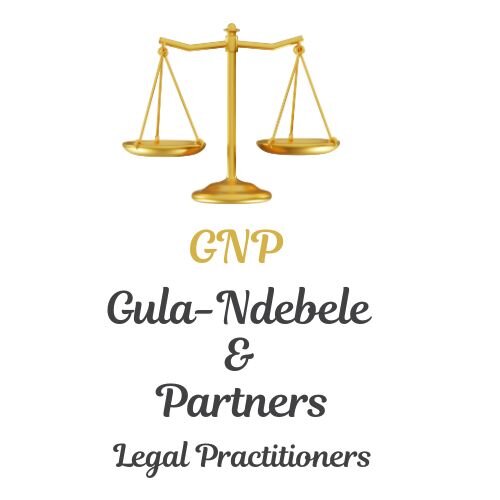Best Trusts Lawyers in Zimbabwe
Share your needs with us, get contacted by law firms.
Free. Takes 2 min.
Or refine your search by selecting a city:
List of the best lawyers in Zimbabwe
About Trusts Law in Zimbabwe
Trusts in Zimbabwe are legal arrangements wherein one party, the trustee, holds assets for the benefit of another party, the beneficiary. Trusts are recognized under Zimbabwean law and governed by the Deeds Registries Act and the Trust Property Control Act. Trusts can serve various purposes, including estate planning, asset protection, and charitable objectives. Establishing a trust can provide a structured approach to managing and distributing assets according to the settlor's wishes.
Why You May Need a Lawyer
Legal assistance is often sought in the realm of trusts in Zimbabwe for several reasons. Common situations include:
- Creating a Trust: Establishing a trust involves complex legal documentation and compliance with statutory requirements.
- Trust Disputes: Beneficiaries or trustees might disagree regarding the management or distribution of trust assets.
- Amendments to Trusts: Legal guidance is needed for modifying trust terms to reflect changing circumstances or intentions.
- Compliance and Oversight: Ensuring that the trust complies with local regulatory requirements and fiduciary duties.
- Dissolving a Trust: Legal advice is necessary to dissolve a trust correctly while fulfilling all obligations to the beneficiaries.
Local Laws Overview
Key aspects of local laws relevant to trusts in Zimbabwe include:
- Formation and Registration: Trusts must be registered under the Deeds Registries Act, ensuring legal recognition and protection.
- The Role of Trustees: Trustees are required to act in the best interest of beneficiaries, maintaining the trust's integrity and fulfilling fiduciary duties.
- Trust Property Control Act: This act regulates the administration and protection of trust property, imposing obligations on trustees concerning asset management and reporting.
- Tax Implications: Trusts may have implications for income tax and capital gains tax, necessitating careful planning and compliance.
Frequently Asked Questions
What is the purpose of a trust?
A trust is primarily used for managing and protecting assets, ensuring they are distributed according to the wishes of the person who created the trust (the settlor).
Can a trust be changed after it is established?
Yes, a trust can be amended if the terms of the trust allow for it, or with the consent of the beneficiaries or through a court order.
Who can be a trustee in Zimbabwe?
A trustee can be an individual, company, or other legal entity appointed to manage the trust's assets for the benefit of the beneficiaries.
How long can a trust last?
The lifespan of a trust can vary, often dictated by the trust deed. It may last for a specific period or until certain conditions are met.
What happens if a trustee does not fulfill their duties?
If a trustee fails in their duties, beneficiaries can seek legal action to have the trustee removed or the trust compensated for any losses due to mismanagement.
Are trusts valid for estate planning purposes?
Yes, trusts are a valuable tool for estate planning, helping to manage, protect, and distribute an estate in a tax-efficient manner.
What are the tax implications of setting up a trust?
Trusts may be subject to income tax and capital gains tax in Zimbabwe, hence it's crucial to consult with a tax advisor when establishing a trust.
Can a trust own a business?
Yes, a trust can own a business. This arrangement can offer benefits in terms of control, succession planning, and asset protection.
How are disputes in a trust resolved?
Disputes typically require mediation or legal intervention, potentially resulting in court rulings to resolve conflicts between trustees and beneficiaries.
Can a non-citizen set up a trust in Zimbabwe?
Non-citizens can generally establish trusts in Zimbabwe, although expert legal guidance is recommended due to the complexity of related regulations and potential tax issues.
Additional Resources
For further assistance, individuals can refer to the following resources:
- Zimbabwe Law Society: Provides access to legal professionals specializing in trust law.
- Registrar of Deeds: Offers guidance on the registration process for trusts.
- Local Legal Firms: Various firms specialize in trust-related legal advice and services.
- Zimbabwe Revenue Authority (ZIMRA): For information on tax obligations related to trusts.
Next Steps
If you require legal assistance with trusts, consider taking the following steps:
- Research and identify legal firms or professionals specializing in trust law in Zimbabwe.
- Prepare necessary documents and information related to your trust needs or concerns.
- Schedule consultations with legal experts to discuss your specific situations and explore available options.
- Ensure clear understanding and documentation of any legal advice or decisions made regarding the trust.
By following these steps, you can secure the necessary legal guidance required to effectively manage and protect your trust-related interests.
Lawzana helps you find the best lawyers and law firms in Zimbabwe through a curated and pre-screened list of qualified legal professionals. Our platform offers rankings and detailed profiles of attorneys and law firms, allowing you to compare based on practice areas, including Trusts, experience, and client feedback.
Each profile includes a description of the firm's areas of practice, client reviews, team members and partners, year of establishment, spoken languages, office locations, contact information, social media presence, and any published articles or resources. Most firms on our platform speak English and are experienced in both local and international legal matters.
Get a quote from top-rated law firms in Zimbabwe — quickly, securely, and without unnecessary hassle.
Disclaimer:
The information provided on this page is for general informational purposes only and does not constitute legal advice. While we strive to ensure the accuracy and relevance of the content, legal information may change over time, and interpretations of the law can vary. You should always consult with a qualified legal professional for advice specific to your situation.
We disclaim all liability for actions taken or not taken based on the content of this page. If you believe any information is incorrect or outdated, please contact us, and we will review and update it where appropriate.
Browse trusts law firms by city in Zimbabwe
Refine your search by selecting a city.
















